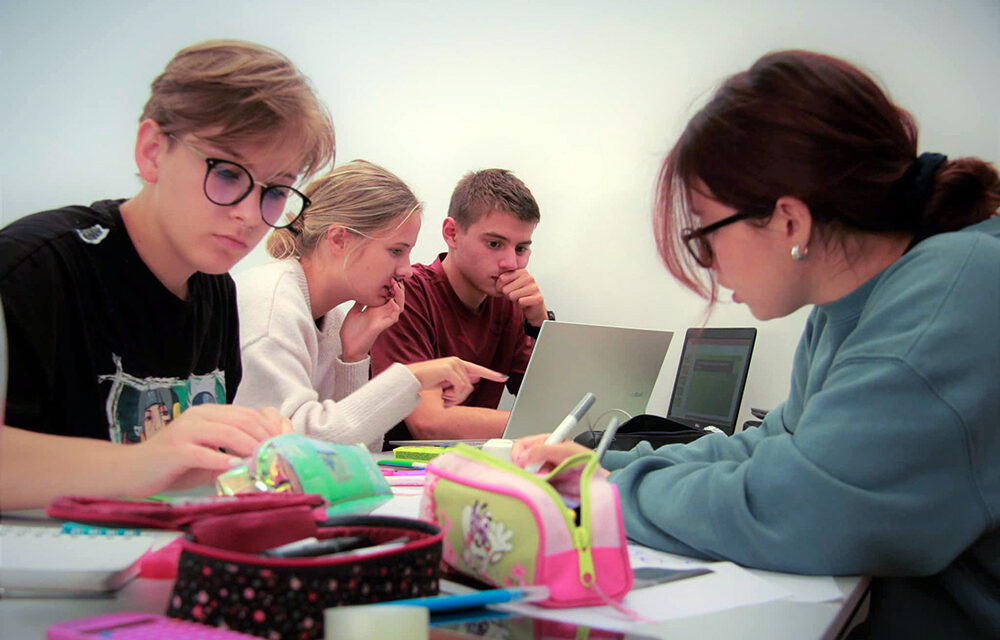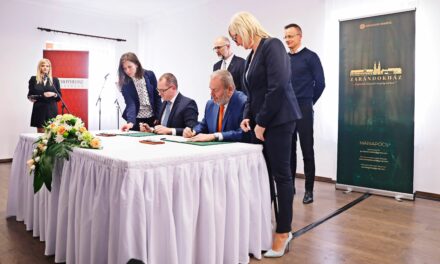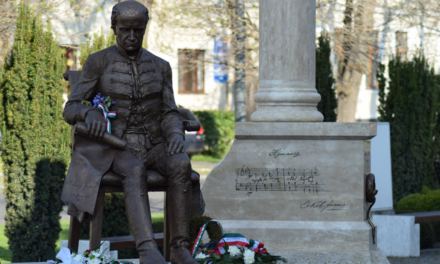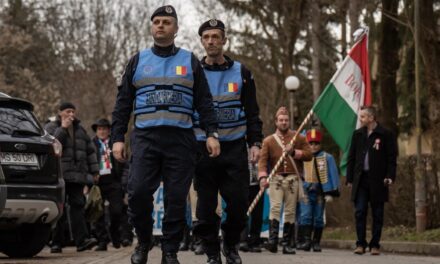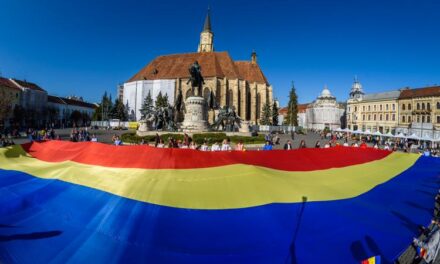Hungarianness can only be preserved through the Hungarian language, which requires Hungarian schools, said the parliamentary state secretary of the Ministry of Defense (HM) in Kisperegen and Pécská, Arad County, on Wednesday, where he handed over the scholarships provided by the Rákóczi Association to children who choose Hungarian-language education.
Tamás Vargha put it like this: "It's a great, uplifting feeling" to be Hungarian. So that "our children and grandchildren can also experience" this, it is necessary to preserve Hungarian-language education. Hungarianness means the people, the nation, but also existence, he added.
According to the politician, the slogan of the Rákóczi Association (In the service of Hungarians) can be interpreted in two ways: "as well as the Hungarian people, and also as in the service of the Hungarian existence". The state secretary said that the mother country, the Hungarian government, helps in various ways to ensure that Hungarians living beyond the country's borders can experience the sense of Hungarianness in their homeland. "Today's program is only a small part of it," he said.
Tamás Vargha Kisperegen handed over the Rákóczi Association scholarship of ten thousand forints and József Béres' book Szép Magyar ének to three preparatory students.
17 students study at the Kispereg elementary school, and 18 attend the kindergarten that also belongs to the institution. (In Romania, the child who turns six in September goes to the so-called school preparatory class, and the scholarships were awarded to them.)
In the eight-grade primary school No. 2 in Pécs - where education is also conducted in Romanian - 9 children attend the preparatory class.
Csongor Csáky, the president of the Rákóczi Association, thanked the parents of the preparatory children for choosing the Hungarian school, i.e. "the Hungarian future". He added that the symbolic financial contribution can be given through the contributions of hundreds of municipalities and private individuals.
Péter Faragó, the President of the Hungarian Democratic Union of Romania (RMDSZ) in Arad County, highlighted in his greeting that it has been a tradition for many years that in September, together with the Rákóczi Union, they thank the families who enrolled their children in a Hungarian-language school.
He added that the modest financial support helps families during the period of starting school. "They help our children receive a Hungarian education. This is the only way to preserve the community and identity," he said, adding, "this is the only way we can be sure that Hungarian people will still live here in 10-30-50 years."
He said that preparatory students also receive a school bag with the support of the Rákóczi Association.
Imre Kovács, mayor of Kispereg (RMDSZ), said that 90 percent of the settlement is inhabited by Hungarians, the municipality supports the maintenance of Hungarian-language education and the renovation of the school as much as it can, but they do not have the resources for major investments.
Earlier, more children attended the school, but since they cannot run independent classes, many take the children to the nearby Pécská, he noted. He added that they started the afternoon session at the beginning of the year, hoping that they would be able to keep the children there.
In September, the Rákóczi Association thanks the families of about nine thousand young Hungarian students starting school abroad. In almost 500 localities, the families of Hungarian children starting school abroad are given symbolic scholarships by the society in the mother country, including hundreds of local governments, recognizing the choice of Hungarian school, thanking the parents for choosing a Hungarian school for their child in their homeland.
The scholarship and the school bag recognizing school choice are awarded to approximately 3,600 in Felvidék, 1,300 in Vojvodina, in Transylvania and Partium - Bihar, Máramaros, Beszterce-Naszód, Arad, Temes, Fehér, Hunyad, Szeben County, Torda and Dés regions - to more than 2,400 school starters, as well as 200 Hungarians will be given to a Moldovan Csangu child receiving education.
According to the Rákóczi Association, choosing a Hungarian school in the areas beyond the border is synonymous with the survival of the Hungarian language, culture and community, and not least with the additional knowledge and better assertion of the individual.
In Romania, Hungarian language education currently takes place in 926 educational institutions in about 1,200 settlements. About 60 percent of the educational institutes are independent Hungarian institutions, the rest have mixed teaching languages. About 120,000 students are currently studying in Hungarian in the Romanian education system. In recent years, the number of children starting elementary school in Hungarian has dropped below ten thousand, but has stabilized at around 9,500.
MTI
Photo: Rákóczi Association Facebook

